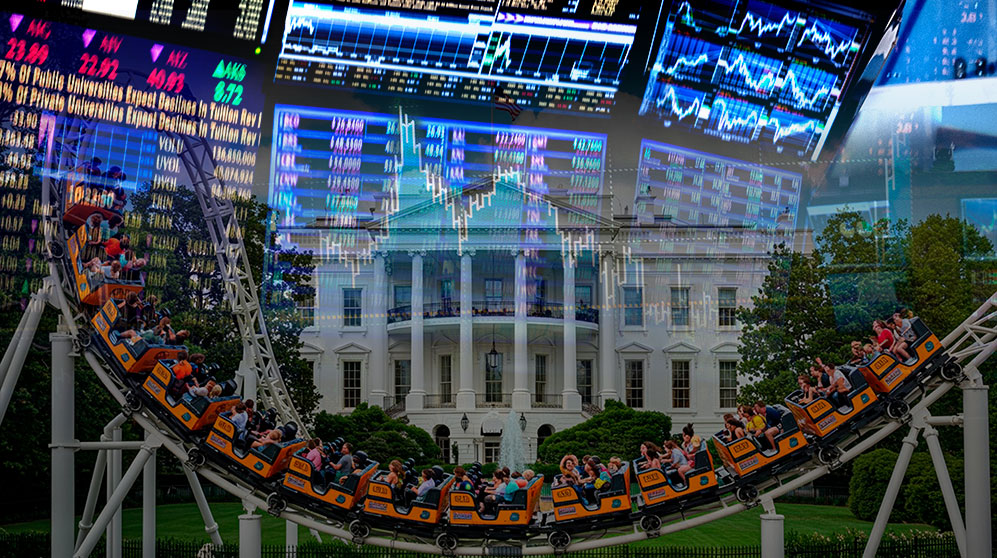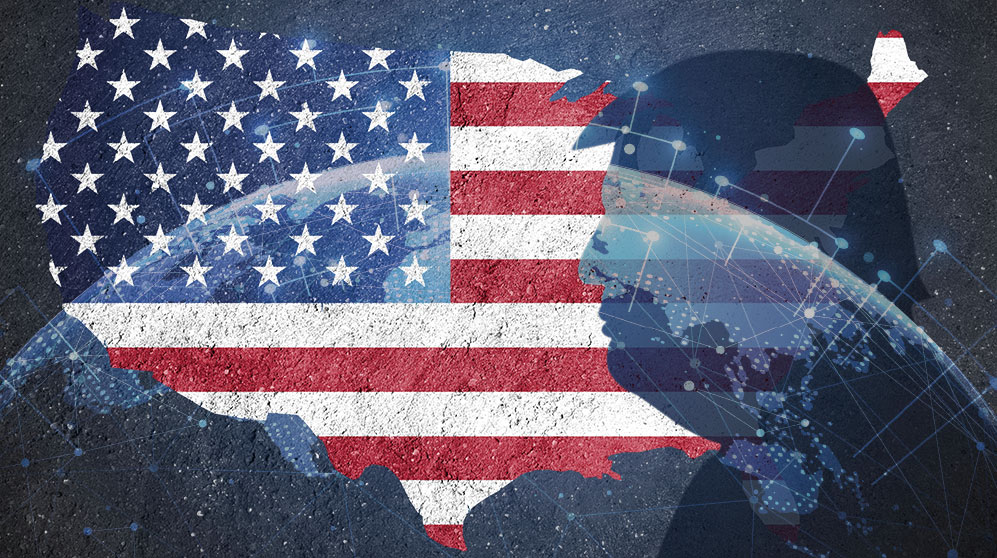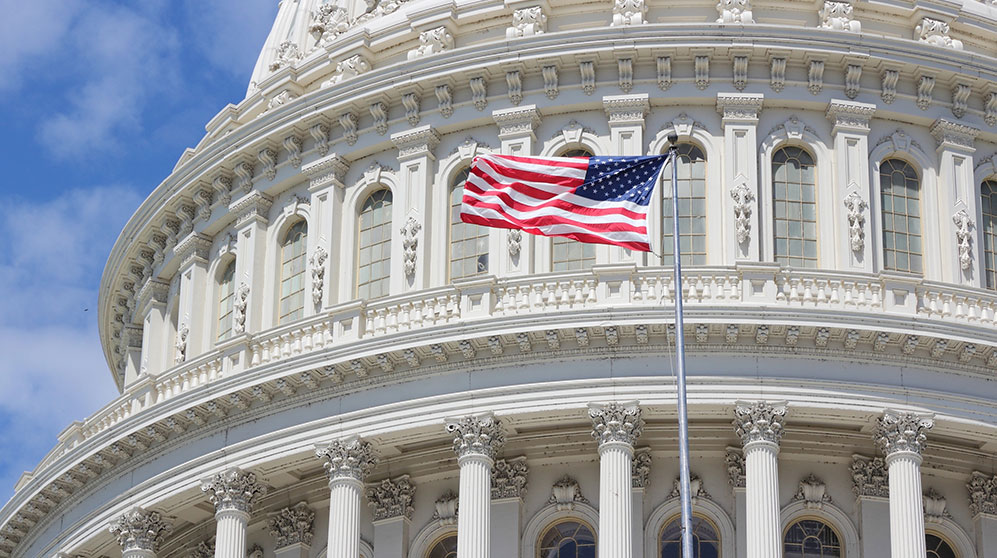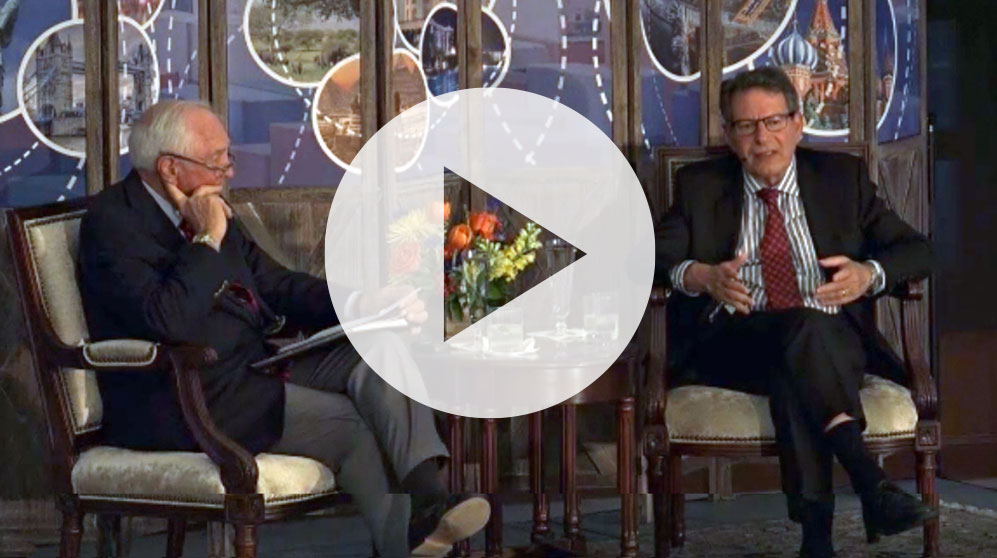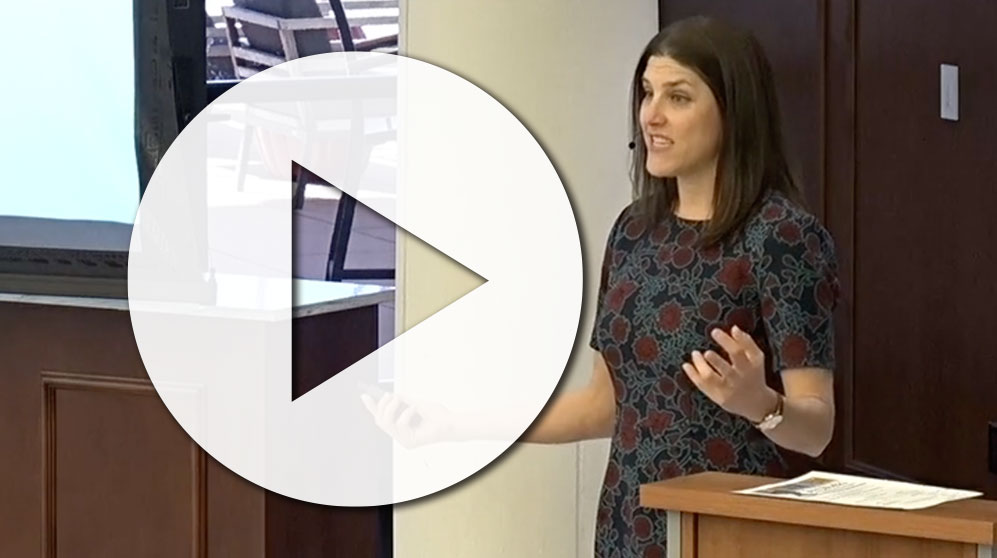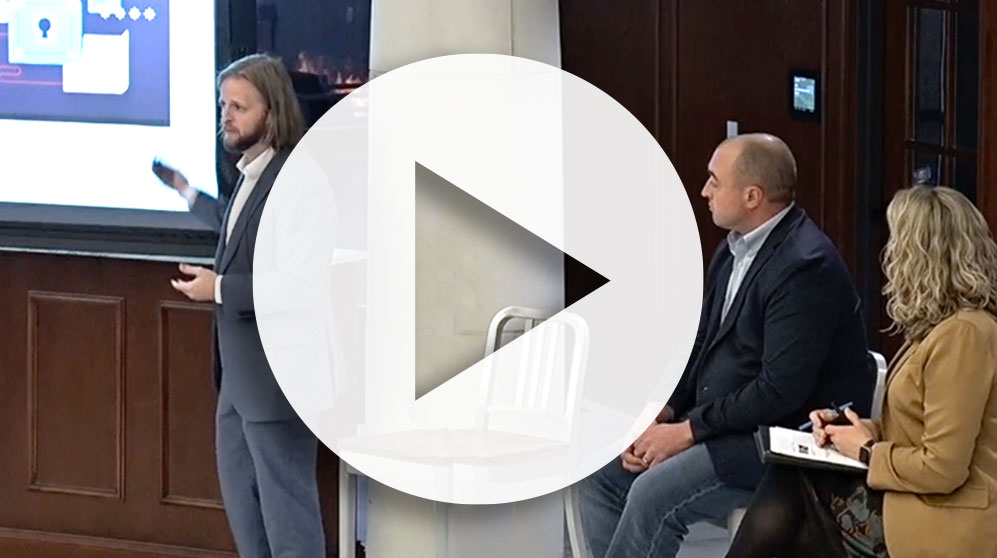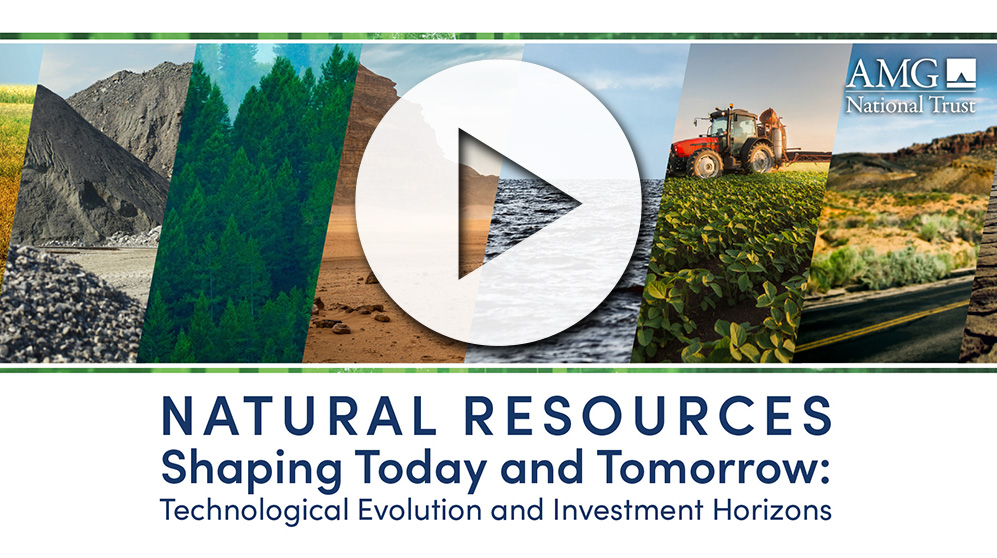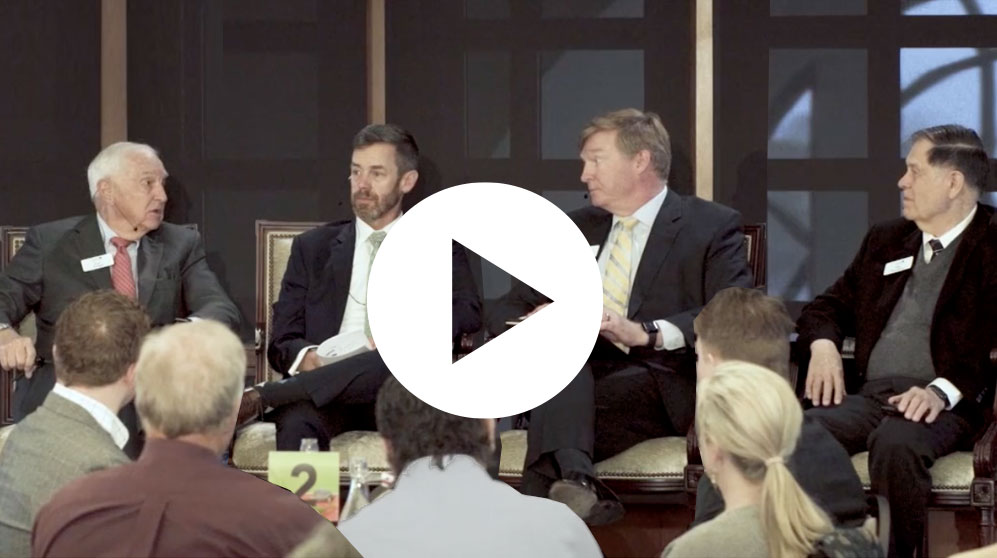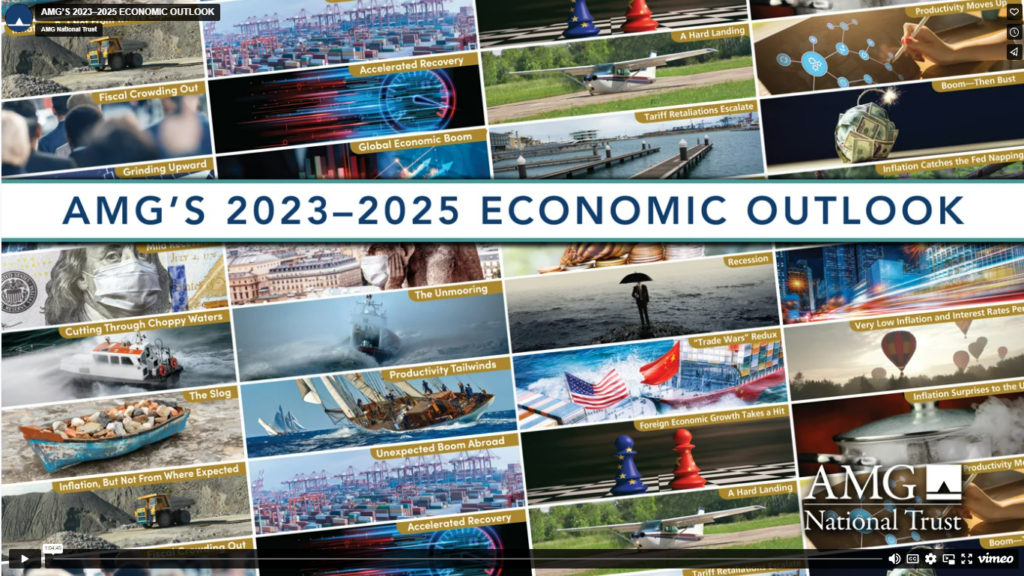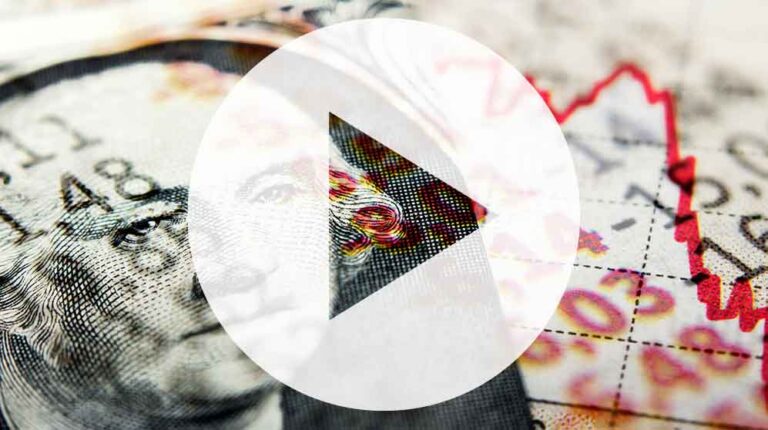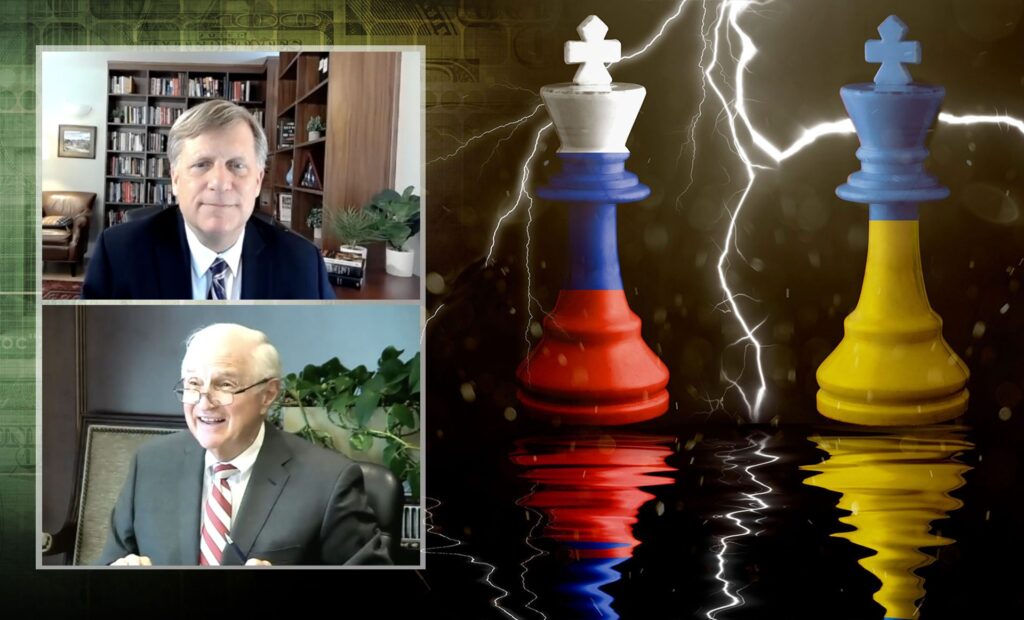Analyzing The Global Chessboard
• 7 min read
- Brief: Global Economy
Get the latest in Research & Insights
Sign up to receive a weekly email summary of new articles posted to AMG Research & Insights.
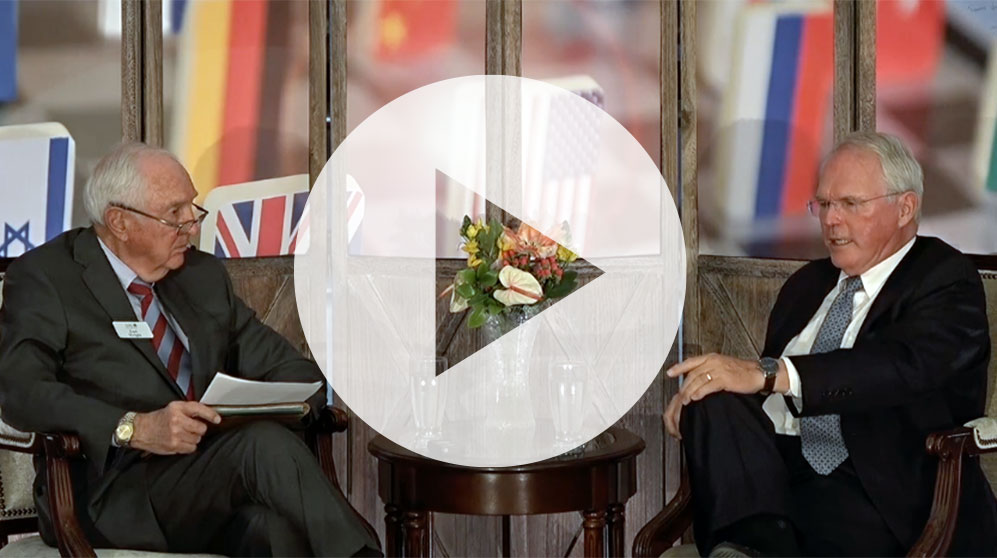
On the geopolitical chessboard, it may seem unlikely for one small nation to be at the crosscurrents of so many global players: threats from Russia, propositions from China, and overtures from the United States and European allies.
Yet that nation is Serbia, in the western Balkans. It’s a very familiar place to Ambassador Christopher Hill, who was U.S. ambassador to Serbia from 2022 to 2025. He also held previous ambassadorships or other duties with Poland, Iraq, North and South Korea, Albania, Macedonia, and Kosovo, and he is a former dean of the Korbel School of International Studies at the University of Denver. His full bio is available here.
Ambassador Hill drew from his long and storied diplomatic career to share his perspective on Ukraine-Russia, U.S.-China strategic competition, U.S. trade policy, and Gaza at a March 27 event titled “The Global Chessboard: A Diplomatic Insider’s View on Global Affairs” at AMG National Trust in Greenwood Village, CO. The discussion was moderated by AMG Chairman Earl Wright.
RUSSIA’S THREATS AND EUROPE’S ROLE
Ambassador Hill spoke of Serbia in the context of its small but important role in larger global contests. The Balkan nation and its neighbors are well aware of the threats posed by Russia, and it’s in a “kind of no man’s land” between Russia and Europe and has applied to join the European Union (EU).
Serbia has responded favorably to U.S. overtures and assisted Ukraine since the Russian invasion, the ambassador said, supplying vital artillery munitions. “Serbia’s done a good job on that because they understand, as everyone in the region understands, that if Russia is without Ukraine, Russia is Russia. If Russia is with Ukraine, Russia is back to being the Soviet Union,” he said.
“And that is a great threat to the entire region.”
Europeans are also “very aware of … (Vladimir) Putin’s instinct to try to be in charge of all these countries.”
The potential sea change of America’s position in NATO is also prodding Europe to act.
Ambassador Hill said “at a certain point in the 1990s, I personally was kind of frustrated by the fact that the Europeans were cashing in on the peace dividend. And we weren’t, because we understood … (if) it’s not Europe, it might be Iraq. So, we were kind of staying with it (defense spending).”
That is beginning to turn around, though, with Europe shouldering a larger share of the financial burden of defense spending because “they’re on that front line” due to their proximity to Russia.
Their new thinking as they adapt to the Trump administration’s view of NATO, he said, is that “we are 500 million Europeans. We have a problem with 150 million Russians. We don’t need 300 million Americans to help us with 500 million Europeans to fight 150 million Russians. We ought to be able to do it ourselves.”
Amid the negotiations over having NATO members bear a larger part of their own defense, the ambassador noted that while individual nations’ overall response may not be overwhelming based on their economic size (Germany, for instance, would be expected to contribute much more than, say, Latvia or Lithuania), some members provide smaller niche forces that do certain things very well and remain valuable allies.
Another point from Ambassador Hill: NATO remains a potent force in fulfilling Article 3 of its founding charter, i.e., deterring war, and even if the United States reduces its funding, we will want to remain engaged in NATO.
INFRASTRUCTURE AND FINANCIAL INROADS FROM CHINA
China has also been aggressive globally, though more subtly than Putin in his quest to restore the Soviet Union. China is playing a longer game through sophisticated aid projects as part of its Belt and Road Initiative, aiming to increase its influence across the Eurasian landmass.
“Don’t underestimate their (China’s) capacity to fine-tune their assistance and fine-tune their investments such that people want them there right now.”
People may not realize that China is the largest financial lender in the world to sovereign nations. Among their initiatives are assistance with infrastructure projects worldwide, including in Serbia, where Chinese tech giant Huawei has several telecommunications contracts. Separately, Microsoft is also in involved in Belgrade with its own tech development center. That can be problematic for the United States as China becomes further involved in helping to build critical infrastructure in other countries.
For decades, U.S. policy has been to engage with China and encourage partnerships that separate them from Russia. The ambassador said he was optimistic about the two countries’ relationship after he met Xi Jinping in 2008, before he became China’s president, as part of the U.S. delegation to the Summer Olympics in Beijing. However, he is now surprised and disappointed by where Xi has taken China’s economic and international policies.
“China has not been a responsible stakeholder in the international system. Rather they’ve chosen to say the international system is unfair and they want to change it to their benefit.”
The ambassador added that he is not a fan of adding the “additional pressure” of tariffs to this mix because “I just don’t know how the Chinese will react.”
TARIFFS MAY EXACERBATE PROBLEMS
More broadly, he said he worries about the impact of U.S. tariffs globally because he thinks they will “infuriate our friends, bewilder our enemies, and not help our economy.”
He expressed frustration at the notion that somehow the United States is a victim in the world of free trade. We have been on the losing side in some instances “because we trade services like insurance and things like that, and countries like China trade cars.”
“I understand that frustration. I submit to you, however, that the United States is the strongest economy in the world. We have our problems. We have to deal with some of those problems. We have our issues of people being left out of modern economies. This is tied into our education system. We have to work on this.”
“We are a strong, resourceful, frankly, brilliant country. … And I think we need to be careful doing things that suggest that we’ve been victimized by other countries.”
GAZA: NOT A GREAT MANY CHOICES
Responding to a question about the likely outcome in Gaza and how that might be achieved, Ambassador Hill said it is important first to listen and try to understand what is going on. Doing so may show that there just aren’t a lot of great choices.
He believes there is an opportunity to get rid of Hezbollah and Hamas and create space for new, “effective” political organizations to step in. That conclusion, he added, is something that Israel “came to a lot sooner than we did.”
“Hamas has nothing to offer a peace process. … They have to be replaced by something that will.”
For a solution, he suggested, “Don’t think in logic. Think in terms of what’s doable.”
However, it appears that the situation in the Middle East will go the way Israel decides to go, the ambassador said.
GLOBAL PERSPECTIVE & WEALTH MANAGEMENT EXPERTISE
At AMG, we plan comprehensively around each client’s unique circumstances, helping clients to make prompt and informed decisions to benefit their financial well-being.
Not a client? Find out more about AMG’s Personal Financial Management (PFM) or to book a free consultation call 303-486-1475 or email us the best day and time to reach you.
This information is for general information use only. It is not tailored to any specific situation, is not intended to be investment, tax, financial, legal, or other advice and should not be relied on as such. AMG’s opinions are subject to change without notice, and this report may not be updated to reflect changes in opinion. Forecasts, estimates, and certain other information contained herein are based on proprietary research and should not be considered investment advice or a recommendation to buy, sell or hold any particular security, strategy, or investment product.
